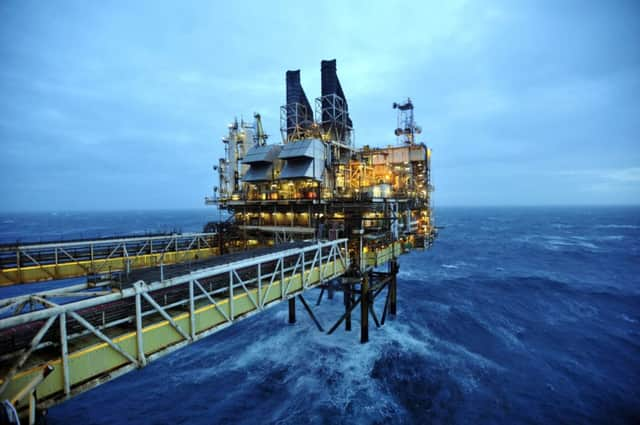Oil price crash sees SNP accused of deceit


Opposition parties have accused the Scottish Government of the “worst kind of deceit” after the Office for Budget Responsibility (OBR) claimed oil revenues would be about £1.25 billion, instead of £6.9 billion heralded by the SNP, in 2016-17.
Labour has now stepped up calls for an inquiry into the validity of official government statistics in light of the price slump, which was under way before the referendum vote.
Advertisement
Hide AdAdvertisement
Hide AdA summit is to be held in Aberdeen in the New Year to address the impact of the slump. Leading oil industry figures have warned that thousands of jobs are facing the axe in the North Sea after the price fell below $60 a barrel – from a summer high of $110.
Scottish Conservative leader Ruth Davidson said: “The SNP told the people of Scotland that the oil price would rise, it would stay high and there would be so much surplus revenue, Scotland could afford an oil fund for the future as well as finance all of the Scottish Government’s day-to-day spending commitments as well. Expert after expert pointed out how fanciful this was – and yet Alex Salmond, Nicola Sturgeon and John Swinney insisted a new oil boom was on the way. It was nonsense then and it is nonsense now.
“It was the worst kind of deceit to try and bribe voters before the referendum and it is to Scotland’s great credit that the majority voters saw through their fantasy economics. Now the oil price has crashed, their silence is deafening.”
CONNECT WITH THE SCOTSMAN
• Subscribe to our daily newsletter (requires registration) and get the latest news, sport and business headlines delivered to your inbox every morning
The OBR published the simulation of revenues in July on different price forecasts. The most pessimistic assumed a price of $77 a barrel in 2015/16, similar to current predictions of $75 a barrel in 2018/19. This scenario would give Scotland about £8 billion of tax revenues between 2014/15 and 2018/19. That is less than a quarter of government forecasts of the £34bn it could expect over the same period with a price of $110 a barrel.
The oil price slump has been blamed on the impact of increased production in the US as a result of the fracking boom, as well as weak demand in recession-hit economies.
Scottish Labour called for the Scottish Government to make available its assessment of the long-term impact of a falling oil price on the oil industry.
Labour’s shadow business, energy and tourism minister and MSP for North East Scotland Lewis Macdonald said: “With experts saying it may be years before the price of oil recovers it is urgent that the Scottish Government does everything it can to protect the jobs of thousands of people working in the oil industry.
Advertisement
Hide AdAdvertisement
Hide Ad“The SNP built an entire economic case for an independent Scotland on oil revenues of £6.9bn.
Those predictions lie in tatters today. Nationalist ministers must learn the lessons of the past so we can secure the future of such a vital industry.”
Liberal Democrat leader Willie Rennie said: “Imagine if Scotland had voted Yes in September. We would not only be facing the current jobs crisis but also a crisis in the Scottish government’s finances. The first days of creating a new nation would have been mayhem.”
Energy minister Fergus Ewing acknowledged that the industry is facing “challenging times” but said it was “essential” that the oil and gas companies avoid cost-cutting by laying off workers.
He said: “It’s essential that, in these very challenging times, companies do not cut costs by cutting the number of young people they employ.”
The Scottish Government has said it is now “imperative” the UK government sets out plans for tax breaks on new investment by March next year to give greater clarity.
SCOTSMAN TABLET AND IPHONE APPS